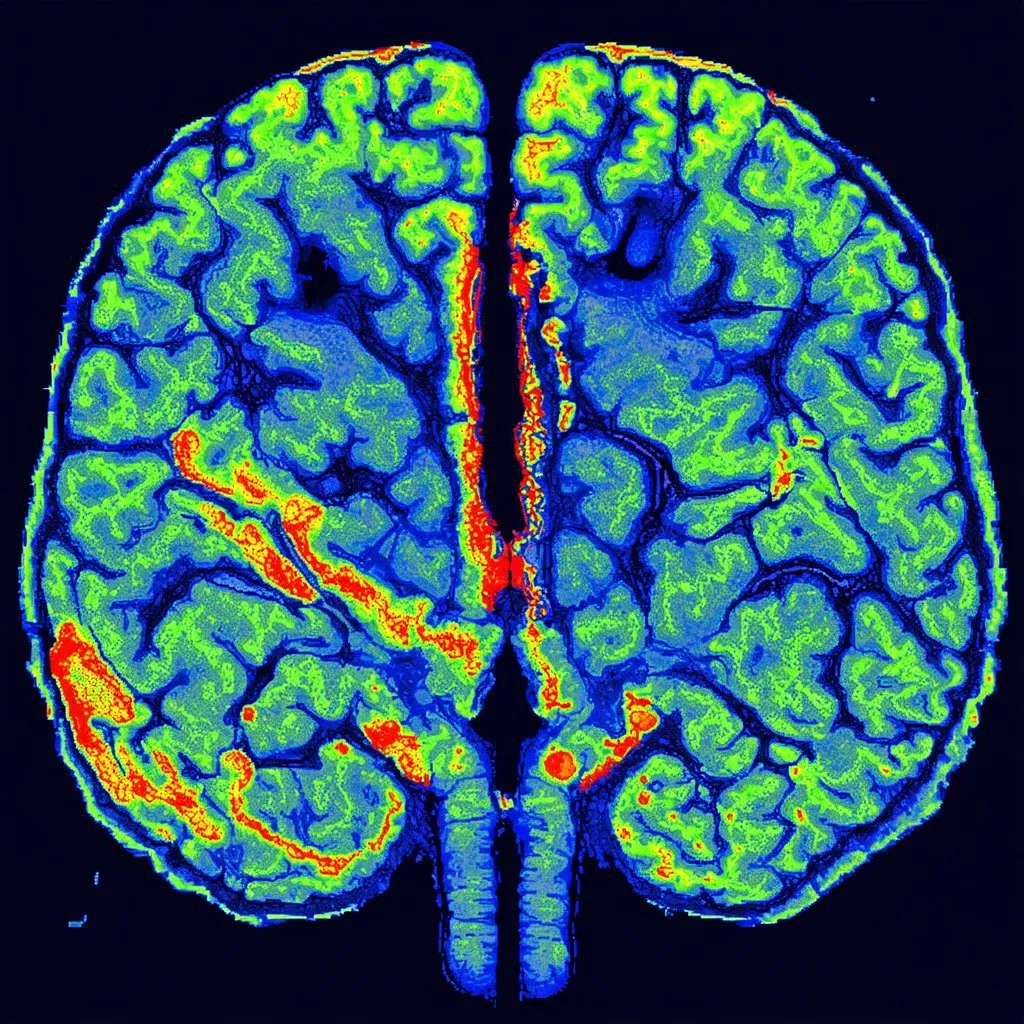Introduction
Obsessive-compulsive disorder (OCD) is a complex mental health condition that affects millions of people worldwide. It is characterized by unwanted and intrusive thoughts, feelings, and sensations that can lead to repetitive behaviors and compulsions. Living with OCD can be a constant battle that affects every aspect of one’s life, making it essential to understand the condition and its treatment options.
The question of whether OCD can go away on its own is a common concern for those affected by the disorder. While OCD is a chronic condition, it is not necessarily a life sentence. With the right treatment and management strategies, it is possible to alleviate symptoms and improve quality of life.
In this blog post, we will delve into the world of OCD, exploring its characteristics, treatment options, and the possibility of it going away on its own. We will examine the latest research and expert opinions to provide a comprehensive understanding of OCD and its management. Whether you are living with OCD or know someone who is, this post aims to provide hope and guidance on the journey towards recovery. So, let’s dive in and explore the complex world of OCD together.
What is OCD and its characteristics?
Obsessive-Compulsive Disorder (OCD) is a chronic and long-lasting mental health disorder characterized by recurring, intrusive, and distressing thoughts, urges, or images (obsessions) that an individual feels compelled to neutralize or cope with through repetitive behaviors or mental acts (compulsions). These symptoms can significantly interfere with a person’s daily life, social relationships, and overall well-being.
Characteristics of OCD:
- Recurring and persistent thoughts, urges, or images: These can be disturbing, intrusive, and unwanted, causing significant distress and anxiety.
- Repetitive behaviors or mental acts: Individuals with OCD may perform specific rituals or behaviors, such as excessive cleaning, checking, or counting, in an attempt to reduce anxiety or prevent perceived harm.
- Symmetry and orderliness: Some people with OCD may have a strong need for symmetry and orderliness, which can manifest in rigid routines or an excessive focus on details.
- Perfectionism: Individuals with OCD may strive for perfection in various aspects of their lives, leading to an excessive focus on details and a fear of making mistakes.
- Avoidance behaviors: People with OCD may avoid certain situations, places, or activities due to fear of triggering obsessive thoughts or compulsions.
Common symptoms of OCD:
- Excessive cleaning or handwashing
- Repeated checking of locks, appliances, or other things
- Ordering or arranging objects in a specific way
- Mental compulsions, such as counting or repeating certain words
- Preoccupation with symmetry or exactness

It is essential to note that everyone experiences some degree of obsessive or compulsive behavior at some point in their lives. However, for individuals with OCD, these symptoms are severe, persistent, and interfere with daily life.
Can OCD be treated and managed?
Fortunately, the answer is yes. Obsessive-compulsive disorder (OCD) is a treatable condition, and various management options are available to help individuals manage their symptoms and improve their quality of life.
Treatment Options
Several treatment options are available for OCD, including:
- Cognitive-behavioral therapy (CBT): A type of psychotherapy that helps individuals identify and change negative thought patterns and behaviors.
- Medication management: Antidepressant medications, such as selective serotonin reuptake inhibitors (SSRIs), can help reduce OCD symptoms.
- Family therapy: Involves the entire family in the treatment process to help them understand and cope with the individual’s OCD symptoms.
- Group therapy: Provides a supportive environment where individuals can share their experiences and learn from others who are going through similar challenges.
Management Strategies
In addition to treatment options, several management strategies can help individuals with OCD manage their symptoms, including:
- Keeping a journal: Writing down thoughts and feelings can help individuals identify patterns and triggers.
- Practicing relaxation techniques: Activities like deep breathing, yoga, and meditation can help reduce stress and anxiety.
- Engaging in regular exercise: Physical activity can help reduce OCD symptoms and improve overall mental health.
- Seeking support: Connecting with others who have OCD can provide a sense of community and help individuals feel less isolated.
OCD is a treatable condition, and various management options are available to help individuals manage their symptoms and improve their quality of life. By seeking professional help and implementing management strategies, individuals with OCD can learn to manage their symptoms and live a more fulfilling life.
Is OCD a chronic condition that can go away on its own?
Obsessive-Compulsive Disorder (OCD) is a complex mental health condition characterized by recurring, intrusive thoughts (obsessions) and repetitive behaviors (compulsions) that an individual feels compelled to perform. The chronic nature of OCD is a topic of interest, with many wondering if it can go away on its own.
While OCD can be a chronic condition, it is not necessarily a lifelong sentence. With proper treatment and management, individuals with OCD can experience significant symptom reduction and improved quality of life. However, the likelihood of OCD resolving on its own without any intervention is low.
Research suggests that OCD is a chronic condition that requires ongoing management and treatment. Studies have shown that without treatment, OCD symptoms can persist and even worsen over time. However, with evidence-based treatments such as cognitive-behavioral therapy (CBT) and medication, individuals with OCD can experience significant symptom reduction and improved functioning.
In some cases, OCD symptoms may decrease over time, but this is often due to the individual developing coping mechanisms and learning to manage their symptoms, rather than the condition resolving on its own. Factors that can influence the resolution of OCD symptoms include the severity of the condition, the presence of co-occurring mental health conditions, and the individual’s overall mental health and well-being.
While there is limited research on OCD resolving on its own, studies suggest that this is not a common occurrence. A study published in the Journal of Clinical Psychology found that only 12% of individuals with OCD experienced spontaneous remission, defined as a significant reduction in symptoms without any treatment.
In conclusion, while OCD can be a chronic condition, it is not necessarily a lifelong sentence. With proper treatment and management, individuals with OCD can experience significant symptom reduction and improved quality of life. However, the likelihood of OCD resolving on its own without any intervention is low, and ongoing management and treatment are often necessary to manage symptoms and prevent relapse.
How can OCD symptoms be relieved and managed?
While OCD can be a challenging condition to manage, there are various effective ways to alleviate its symptoms. A combination of self-help strategies, lifestyle changes, and professional treatments can help individuals with OCD regain control over their lives.
Self-Help Strategies:
- Cognitive-Behavioral Therapy (CBT): This type of therapy helps individuals identify and challenge their negative thought patterns, reducing the frequency and intensity of OCD symptoms.
- Exposure and Response Prevention (ERP): This technique involves exposing oneself to situations or stimuli that trigger OCD symptoms, while resisting the urge to engage in compulsive behaviors.
- Mindfulness and Relaxation Techniques: Practicing mindfulness, meditation, or yoga can help reduce anxiety and stress associated with OCD.
- Journaling: Writing down thoughts, feelings, and behaviors can help individuals identify patterns and gain insight into their OCD symptoms.
Lifestyle Changes:
- Establish a Daily Routine: A consistent daily routine can provide a sense of structure and control, reducing anxiety and OCD symptoms.
- Regular Exercise: Physical activity can help reduce stress and anxiety, improving overall mental health.
- Healthy Sleep Habits: Establishing a consistent sleep schedule and creating a relaxing bedtime routine can improve sleep quality and reduce OCD symptoms.
- Social Support: Connecting with friends, family, or a support group can help individuals feel less isolated and more supported.
Professional Treatments:
- Medications: Selective serotonin reuptake inhibitors (SSRIs) and other medications can help reduce OCD symptoms by regulating brain chemistry.
- Therapy Sessions: Regular therapy sessions with a mental health professional can provide individuals with OCD with personalized guidance, support, and accountability.
- Family Therapy: Family therapy can help loved ones understand and support individuals with OCD, improving relationships and overall well-being.
- Cognitive-Behavioral Group Therapy: Group therapy can provide individuals with OCD with a sense of community and social support, while also teaching coping skills and strategies.
By incorporating these self-help strategies, lifestyle changes, and professional treatments into daily life, individuals with OCD can effectively manage their symptoms and improve their overall quality of life. It’s essential to work with a mental health professional to develop a personalized treatment plan that addresses specific needs and goals.
Can OCD symptoms decrease over time, and what factors influence resolution?
While OCD is a chronic condition, research suggests that symptoms can decrease over time with proper treatment and management. Studies have shown that individuals with OCD can experience significant reductions in symptoms with exposure and response prevention (ERP) therapy, cognitive-behavioral therapy (CBT), and medication.
Several factors can influence the resolution of OCD symptoms, including:
- Treatment adherence: Consistently following a treatment plan and attending therapy sessions can lead to better outcomes.
- Therapist-patient relationship: A strong, supportive relationship between the therapist and patient can enhance treatment effectiveness.
- Family support: Having a supportive family environment can help individuals with OCD stay motivated and engaged in treatment.
- Self-help strategies: Engaging in self-help activities, such as mindfulness and relaxation techniques, can help individuals manage symptoms and reduce stress.
- Lifestyle changes: Making healthy lifestyle changes, such as regular exercise and a balanced diet, can help alleviate symptoms.
Research has also shown that OCD symptoms can decrease over time due to natural fluctuations in the condition. A study published in the Journal of Clinical Psychology found that individuals with OCD experienced significant reductions in symptoms over a 12-month period, even without treatment.
However, it’s essential to note that OCD is a complex condition, and symptoms can vary in severity and impact over time. While some individuals may experience significant reductions in symptoms, others may continue to struggle with debilitating symptoms.
In conclusion, while OCD symptoms can decrease over time with proper treatment and management, it’s crucial to work with a mental health professional to develop a personalized treatment plan. With the right combination of therapy, self-help strategies, and lifestyle changes, individuals with OCD can learn to manage their symptoms and improve their quality of life.
What research supports or contradicts the idea of OCD resolving on its own?
Research on obsessive-compulsive disorder (OCD) suggests that the condition can have a varied course, with some individuals experiencing spontaneous resolution, while others may experience a chronic and debilitating condition.
Studies have shown that OCD can have a favorable course, with some individuals experiencing a decrease in symptoms over time. A review of 13 studies from the pre-SRI/CBT era broadly concluded that “obsessional neurosis has a favorable course.” This review noted that spontaneous resolution was possible, but also emphasized the importance of treatment in achieving optimal outcomes.
However, other research suggests that OCD is a chronic condition that rarely resolves spontaneously. A study published in the Journal of Clinical Psychology found that only 10% of individuals with OCD experienced spontaneous remission, while 60% continued to experience symptoms over a 10-year period.
Furthermore, research has identified several factors that can influence the course of OCD, including the presence of comorbid conditions, such as depression and anxiety disorders. Studies have also shown that individuals with OCD who experience social problems, such as those with autism, may be more likely to experience anxiety and OCD symptoms.
In terms of treatment, research has shown that a combination of medication and cognitive-behavioral therapy (CBT) can be effective in reducing symptoms of OCD. However, some studies have also suggested that antipsychotics may exacerbate OCD symptoms in some individuals.
Overall, the research suggests that while some individuals with OCD may experience spontaneous resolution, the condition is often chronic and requires treatment to achieve optimal outcomes.
In conclusion, while Obsessive-Compulsive Disorder (OCD) can be a challenging and chronic mental health condition, research shows that it is possible for OCD symptoms to decrease or disappear on their own, particularly with the right treatment and support. Factors that contribute to the resolution of OCD symptoms include effective treatments such as Cognitive-Behavioral Therapy (CBT) and medication, self-help strategies like mindfulness, relaxation techniques, and lifestyle changes, and a strong support network of family, friends, and mental health professionals. Moreover, acknowledging OCD as a legitimate mental health condition and seeking help is the first step toward recovery. While OCD may not entirely disappear on its own, with appropriate treatment and support, individuals with OCD can learn to manage their symptoms, reduce their severity, and regain control over their lives. It is essential to remember that OCD is not a lifelong sentence, and with the right help and support, recovery is possible.
References
- https://www.thetransmitter.org/spectrum/untangling-ties-autism-obsessive-compulsive-disorder/
- https://atlanticbehavioralhealth.com/severe-ocd-treatment-approaches-for-extreme-symptoms/
- https://www.aspris.ae/news-blogs/how-to-help-someone-in-your-household-with-ocd-symptoms/
- https://thehorse.com/18130/equine-ocd-harmless-bone-lesion-or-permanent-problem/
- https://holisticmed.clinic/can-you-grow-out-of-ocd/
















